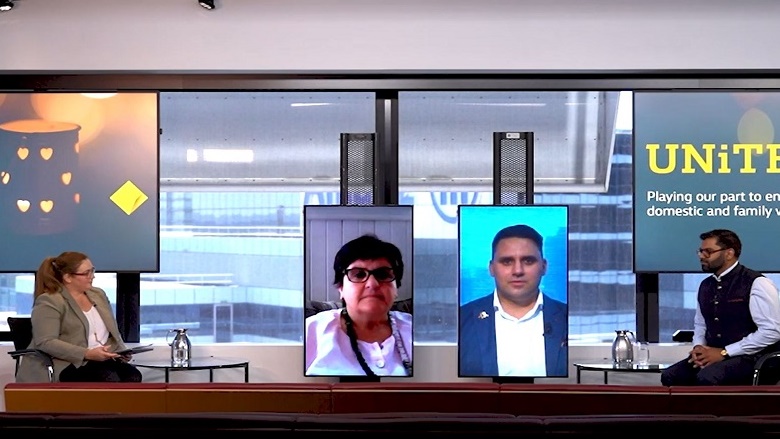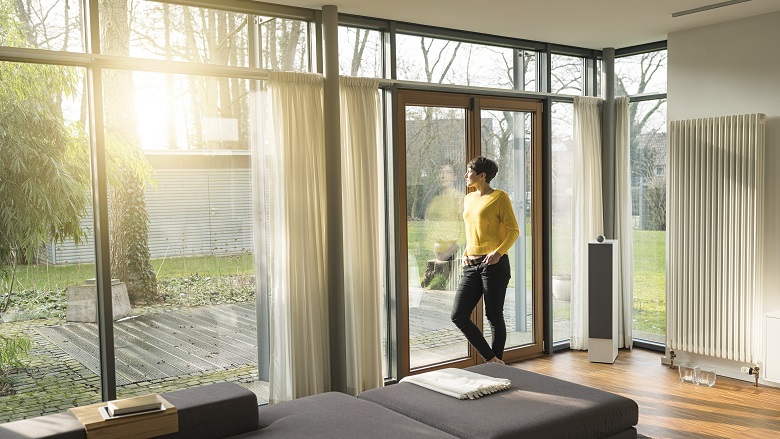A talented line up of speakers joined Kerryn on the panel, including the UNSW Sydney’s Gendered Violence Research Network co-convenor and professor, Jan Breckenridge; LGBTQ Domestic Violence Awareness Foundation president, Ben Bjarnesen; and Our Watch Ambassador and advocate, Tarang Chawla.
A number of important areas were addressed during the event including how stereotypes and assumptions can impede our ability to respond appropriately, and how best to provide support in the workplace.
The discussion featured a recurring theme of intersectionality, and highlighted the critical need to recognise all aspects of people’s lives to be able to provide the appropriate support.
During the panel discussion, Ms Breckenridge said victims of family and domestic violence are far more than the circumstances of their abuse, and it’s by looking at things holistically that we can create real impact in addressing the issue.
Mr Bjarnesen said many of the support services that target men are focused on support for reform, but don’t take into account that men, and especially LGBTQ men, can be victims too.
Mr Bjarnesen said 62 per cent of gay, bi and queer men had experienced domestic violence, but only five per cent had reported it to the police.
According to Mr Bjarnesen, unique support needs to be targeted towards individuals, so victims and survivors not only receive the tools to escape abusive situations, but feel supported and comfortable to seek help.
Domestic and family violence spans a spectrum of behaviour which isn’t always physical. The emotional and psychological impacts of abuse can have long-lasting effects and it’s through recognising the signs that we can help those in need.
Mr Chawla shared some ways to address the issue in the workplace, and reaffirmed the importance of understanding the signs of abusive behaviour, which can often be small, and knowing how to have a conversation in a safe manner with someone who might need support.
A key takeaway from all panellists was the need to not make assumptions. Anyone can be affected by family and domestic violence. It doesn’t discriminate and we need to all work together, both in the workplace and broader society to combat the issue.
As part of Commonwealth Bank’s commitment to help people impacted by domestic and family violence, the bank is working with partners to increase awareness and continue the conversation on the issue of domestic and family violence. By educating employees, customers, and the community on the important part everyone plays in response and prevention, the bank hopes to inspire action for change.
You can watch the full panel event below.



